A panel discussion on the physical, digital, and psychological risks for photographers covering political rallies, protests, and events in an increasingly polarised environment leading up to the 2020 U.S. Presidential election.
A panel discussion on the physical, digital, and psychological risks for photographers covering political rallies, protests, and events in an increasingly polarised environment leading up to the 2020 U.S. Presidential election.
Presenters: Nina Berman Mary O’Shea Maria Salazar Ferro Daniel “Danny” Spriggs Ryan Christopher Jones
Location: St. Ann’s Warehouse
Photoville Talks at St. Ann’s Warehouse are produced by United Photo Industries and supported in part by PhotoWings and the Phillip and Edith Leonian Foundation.
A panel discussion on the physical, digital, and psychological risks for photographers covering political rallies, protests, and events in an increasingly polarised environment leading up to the 2020 U.S. Presidential election.
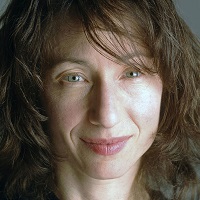
Nina Berman is an American photographer who has covered the conflict in Bosnia and Taliban-ruled Afghanistan. She now focuses attention on the aftermath of war and contemporary political, and social landscapes in the U.S. Her photographs and videos have been exhibited at over one hundred venues worldwide, including the Whitney Museum of American Art, the Museum of Fine Arts, Houston, the Zachęta National Gallery of Art in Poland, and Dublin Contemporary (IMMA).
She has received awards from the New York Foundation for the Arts, the Open Society Foundations, World Press Photo, and Hasselblad, among others. She is an associate professor at Columbia University Graduate School of Journalism, and she is a member of NOOR photo agency.
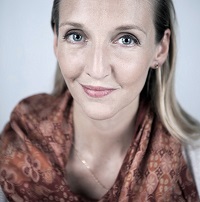
Mary O’Shea is Head of Programmes at the Rory Peck Trust, an organisation dedicated to the support, safety, and welfare of freelance news-gatherers around the globe.
In this role, Mary oversees all the Trust’s programmes and initiatives in support of freelance journalists. Mary is also a board member of the ACOS (A Culture of Safety) Alliance, a coalition of major news companies, journalism organisations, and freelance journalists, seeking to develop worldwide protection standards.
Prior to joining the Trust, Mary worked extensively with the United Nations on human rights and elections. At United Nations Development Programme’s Asia-Pacific Regional Centre, she provided democratic governance programme, and policy support across the region.
She has also supported electoral processes and institutions in Afghanistan, Jordan, Bangladesh, Tunisia, Lebanon, Kazakhstan, Togo, Thailand, Moldova, Sudan, Tanzania, Timor-Leste, Maldives, and Ethiopia. Before joining the UN, Mary worked at the European Commission, monitoring and reporting on human rights and political developments across Africa.
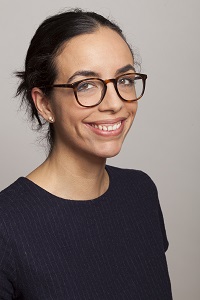
Maria Salazar Ferro became director of the Committee to Protect Journalism’s (CPJ) Emergencies Department in October 2016. She oversees CPJ’s assistance and safety work worldwide.
In 2018, she was elected president of the board of the ACOS (A Culture of Safety) Alliance, a coalition formed in 2015 that improves protections for freelance journalists. Salazar Ferro joined CPJ in 2005, and has served as coordinator for the Journalist Assistance Program and the Global Campaign Against Impunity, and as senior research associate for the Americas program.
Salazar Ferro has spearheaded international coalitions to support journalists in distress in East Africa, and in Syria. She has written about exiled, missing, and murdered journalists. She has represented CPJ on missions to Mexico, Kenya, Turkey, and the Philippines, among others, and served on the IFEX (formerly International Freedom of Expression Exchange) counsel from 2011 to 2013.
Prior to joining CPJ, Salazar Ferro worked as a researcher for the United Nations Fund for Population Aid, and the International Planned Parenthood Federation, and as an associate reporter for Inter-Press Services in New York. She holds a bachelor’s degree from the University of Virginia and a master’s degree from Los Andes University in Bogotá. She is fluent in French and Spanish.
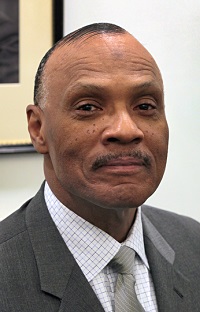
Daniel “Danny” Spriggs is Vice President of Global Security at the Associated Press (AP) headquarters in New York City, where he facilitates all security-related tactical, operational, and strategic planning for AP’s 243 bureaus in 97 countries.
Spriggs spent 28 years in the Secret Service, starting as a special agent with the Albuquerque, New Mexico field office, and worked his way up to deputy director in Washington, D.C. in 2002. In that role–the No. 2 position in the agency–he helped carry out the presidential executive order transitioning the Secret Service from the Department of the Treasury to the newly created Department of Homeland Security.
He later served as assistant vice president for the Federal Reserve in Philadelphia, where he managed the regional bank’s protection department, overseeing a uniformed force of Federal Reserve law enforcement officers whose duties included security of the facility.
His awards and honors include a Special Act Award from the Department of the Treasury, for Spriggs’ performance during the March 30, 1981 assassination attempt on the life of President Ronald Reagan, and in 2002, the rank of Distinguished Executive in the Senior Executive Service, for “sustained extraordinary accomplishment in management of programs, and for leadership exemplifying the highest standards of service.”
A native of Washington, D.C., Spriggs earned his Bachelor of Arts at the University of New Mexico, and began his law enforcement career in 1974 as a police officer in Albuquerque, N.M. Among his affiliations are the International Association of the Chiefs of Police, the U.S. Marine Corp Law Enforcement Foundation, and the National Organization of Blacks in Law Enforcement.
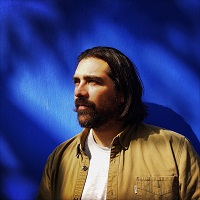
Ryan Christopher Jones is a Mexican-American photojournalist and PhD student in Social Anthropology at Harvard, where he is researching California water law, public/private access to water, and communities impacted by climate change in the California Delta. He will also continue to think and write about photography’s role in how we come to understand the environment. Ryan is a winner of the 2022 American Mosaic Journalism Prize.
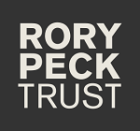
The Rory Peck Trust is an organisation dedicated to the support, safety, and welfare of freelance news-gatherers around the globe.
Established in 1995, in memory of freelance cameraman Rory Peck, who was killed in Moscow in 1993, the principal objectives of the Trust are: to provide practical assistance and support to freelance journalists and their families worldwide, to raise their profile, promote their welfare and safety, and to support their right to report freely, and without fear.
Based in London, the Trust works globally with a network of international and local partners, and is totally independent, relying on contributions from corporations, trusts, foundations, and individuals to carry out its work. We believe that freelancers play an important and integral role within news-gathering, and see the Trust’s role in protecting and supporting them, as a practical and significant contribution to independent journalism and the free flow of information.
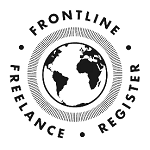
The Frontline Freelance Register (FFR) is a representative body for freelance journalists, created for and run by freelancers. Founded in 2013, FFR is a member-driven, ring-fenced initiative of the Frontline Club Charitable Trust. As a membership association, FFR is open to international freelance journalists who are exposed to risk in their work, and who adhere to its Code of Conduct.
Its core mission is to support the physical and mental well-being of international freelance journalists who are exposed to risk in their work. It provides freelancers with a forum, a representative body, and a critical mass to advocate for their safety, protection and welfare.
FFR also promotes professionalism and safety awareness within the freelance journalism community. FFR‘s Code of Conduct is central to this mission, as it allows freelancers to demonstrate that they abide by responsible news gathering standards consistent with those established and recognised by the news media industry.
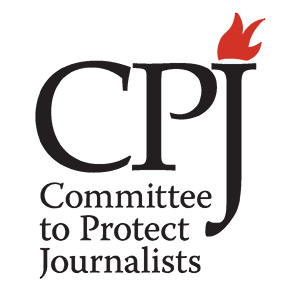
The Committee to Protect Journalists is an independent, nonprofit organization that promotes press freedom worldwide. CPJ provides comprehensive support to journalists and media support staff working around the world through up-to-date safety and security information and rapid response assistance.